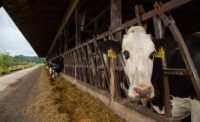Sweet, Sustainable
Forces of Change
By Mary Ellen Kuhn
It’s neither simple nor easy, but World Cocoa Foundation initiatives are delivering improvements in cocoa farming conditions.
It’s been more than six years since a BBC documentary and follow-up media coverage grabbed the public’s attention with disturbing charges of child slavery on Africa’s C’ote d’Ivoire cocoa farms.
Vicki Walker, a program director with the U.S.-based
development agency Winrock International, was in West Africa at the time,
working in the country of Mali on education programs for women and girls.
She heard the news stories at about the same time as the rest of the world,
but she was already well aware of a host of social and economic problems in
West Africa — poverty, poor agricultural practices and lack of
education, as well as child labor issues.
The problem of child labor –- like the others
— is complex, and Walker believes that addressing it requires a
multi-faceted approach. “There are so many different ways of talking
about child labor,” Walker reflects. “There’s forced
child labor. There’s trafficking [transporting children to
exploitative situations]. Then there are certain types of child work that
are acceptable — children who work next to their families doing
non-hazardous work.
“You don’t just look at one part of
it,” says Walker. “You work with families in a holistic
approach.” Today Winrock operates one of several West African
projects funded by the chocolate- and cocoa industry-supported World Cocoa
Foundation (WCF). Like Winrock, WCF has taken a multi-faceted, long-term
approach to developing programs to address the complex web of social and
environmental challenges cocoa farmers face. There are no quick and easy
fixes, stresses Bill Guyton, WCF president.
“One of the problems we’ve had is that, in
a sound bite, it’s hard to explain,” says Guyton, describing
WCF’s newest initiative, Healthy Communities.
Here’s an update on some of the WCF-supported
programs that have already begun to make a difference in many different
aspects of cocoa farmers’ lives.
Healthy Communities. Announced by WCF this fall, this effort will build on the
Farmer Field School model that WCF, the U.S. Agency for International
Development (USAID) and other partners have successfully pilot tested in
West African cocoa-growing communities over the past several years.
Among other things, Farmer Field Schools have
developed successful interventions for crop disease and pest problems,
introduced improved farming techniques and assisted farmers in forming
co-operatives to market their crops collectively. There’s a public
health component as well; HIV/AIDS awareness and malaria prevention
training are offered. West African farmers who have participated in the
pilot programs have seen their incomes increase by 20 percent to 55
percent, Guyton reports.
When families increase their incomes, they’re
better able to pay school fees, points out Karl Walk of Blommer Chocolate
Company, co-vice-chair for WCF. “It’s improving their overall
livelihood, which we believe will show that the farm lifestyle is something
that can be sustained.”
Walk adds that another benefit of the Field Schools is
the fact that they bring together formerly isolated farmers. Frequently
after completing the program, groups of farmers have banded together in
cooperatives to sell their cocoa, thus commanding a better price for it.
About 150,000 West African farmers are expected to
benefit from the Healthy Communities program between 2007 and 2011.
Healthy Communities is sponsored by WCF with
additional grants from ADM Cocoa, Blommer, Cadbury, The Hershey Company,
Ferrero, Kraft, Mars Inc., and Nestlé.
CLASSE. The
acronym stands for Child Labor Alternatives through Sustainable Systems in
Education. This WCF-supported program is operated in the C’ote
d’Ivoire by Winrock, a group whose roots extend to the 1950s, when it
was established by Winthrop Rockefeller to provide agricultural training
and rural development programs for Arkansas farmers. In subsequent years,
it merged with other groups, and the focus has broadened.
The CLASSE project on the Cote d’Ivoire has a
strong agricultural core.
A CLASSE field agent
works closely with the Ministry of Education on a variety of innovative
vocational educational programs, teaching classes in subjects such as plant
biology and agricultural techniques. Three communities have planted small
cocoa nurseries and gardens, and the produce from the gardens is used to
enrich lunches served at the school canteens. A credit program helps
provide families whose children stay in school with funds that they can put
back into their own farms. Health and HIV/AIDS education are also important
components in the training provided by the field agent.
“To date,” says Walker, “more than
1,000 children at least are receiving direct agricultural training. And
many, many more — it’s difficult to measure the number —
have been made more aware.”
The CLASSE program is managed by Winrock with funding
from Mars Inc., and the Norwegian Association of Chocolate Manufacturers.
Solar Dryer Project. In Ecuador, Blommer partnered with a South American conservation
group on an effort that is beautiful in its simplicity and its
productivity, says Walk.
Easily constructed solar dryers — which resemble
greenhouses — are yielding better quality cocoa and improving
farmers’ productivity. Without the dryers, Walk explains, cocoa
farmers must simply lay their product out on the ground to dry — a
process that is interrupted whenever it rains. At that point, the farmer
must rush to cover the crop, wait until the rain stops, and then lay it out
again. It’s time-consuming, and the cocoa often gets moldy in the
process, reducing its value.
“We were told by one of the first farmers that
received a dryer that, because they were able to dry their cocoa properly,
the price they received for it was double,” says Walk.
The goal of the project is for Blommer and the
conservation group, Conservacion De Sarrollo, to build 500 dryers in the
next two years.
Patience + partnerships produce progress
“I see really exciting things happening on
several levels,” says Guyton. He’s proud of what WCF has
achieved since it was established in 2000 with seven multi-national
corporations as the initial members. Now there are 57 members, representing
companies of all different sizes.
Timothy Moley is president of one of the smaller member
companies, Boulder, Colo.-based Chocolove. He offers this summation of the
organization’s efforts. “We as an industry have stepped up and
said, ‘The wellbeing of everybody in the trade is important to
us,’” says Moley.
Chocolate manufacturers — and ultimately the
consumer — will benefit at well, Walk adds. “I think the
overall impact to the consumer will be a better quality product from
sustainable sources,” he observes.
How to Help
For more information on supporting World Cocoa
Foundation projects, contact Bill Guyton at Bill.Guyton@worldcocoa.org or
check out the foundation’s Web site at www.worldcocoa.org.




